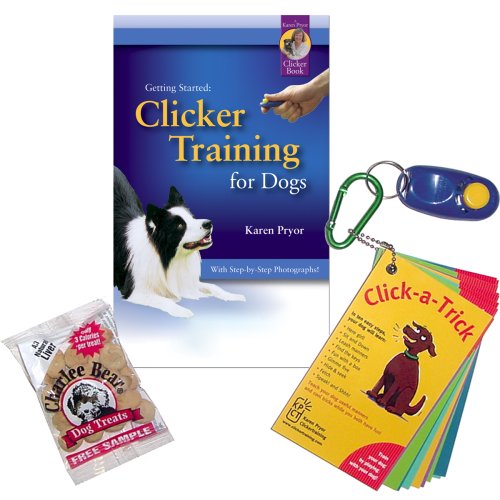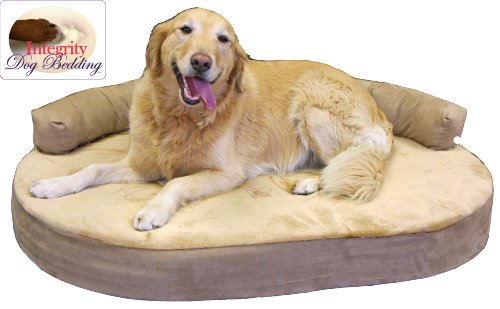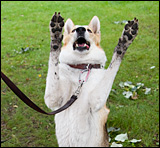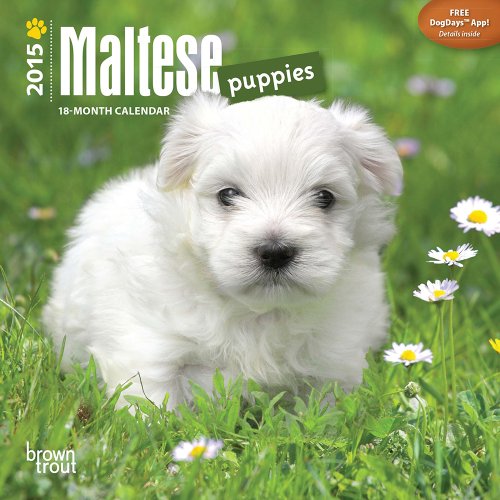Whew! What has Spot been eating? His breathe smells awful. Doggie bad breathe may mean that you need to pay more attention to your dog's oral hygiene. Dogs are prone to the same dental problems as people - cavities, plaque build-up, and gingivitis.
What's happening?
A dog's mouth is warm and moist and provides an ideal environment for bacterial organisms to grow sometimes leading to plaque and calculus. Once plaque and calculus form on the teeth, the normal microbes gets out of balance and trouble can follow. A common condition discovered during a physical exam is a foul breath odor resulting from periodontitis. Periodontitis is a general term for a disease of the oral cavity that attacks the gum and bone and the delicate tissues around the teeth.
Other common dental conditions seen in dogs include: Gingivitis an inflammation of the gums; Caries - an area of decalcification of the tooth enamel leading to cavities in the tooth; Plaque - the buildup of material adhering to the enamel of the tooth composed of a mixed colony of bacteria; Calculus (Tartar) - calcium carbonate and calcium phosphate combined with organic material, deposited on the surface of the tooth; and Pyorrhea - an inflammation of the gums and tooth sockets, often leading to loosening of the teeth and accompanied by pus.
What should you do?
One of the best ways to ensure oral health is to provide the dog with a well-balanced, meat-based dog food. Meat assists in keeping the mouth environment healthy. Encourage your dog to chew treats that require some exercising of the teeth, such as is provided by compressed rawhide chewies, and hard rubber or nylon chew toys. Brushing the dog's teeth can be a big help, too, but needs to be done almost daily.
There are also new dental care products that include antiseptic chewies, canine tooth brushes, and even flavored tooth pastes. Routine oral hygiene vet visits for ultrasonic teeth cleaning, close inspection of teeth and gingiva, and assessment of overall oral health is recommended. Your personal vet will have some training in assessing your pet's dental needs and providing treatment. Pet dentistry is also one of twenty specialties currently recognized by the American Veterinary Medical Association. A certified pet dentist will have had 3 to 6 years of training in the area of specialization beyond the Doctor of Veterinary Medicine degree.

 Choosing a Dog Breed
Choosing a Dog Breed
Choosing a Dog Breed
Choosing a Dog Breed
 Basic Obedience Training for Dogs: What You Ought to Know
Credit: Fran Hogan
From: publicdomai
Basic Obedience Training for Dogs: What You Ought to Know
Credit: Fran Hogan
From: publicdomai
 Is Rice Laced With Arsenic?
Credit: Copyright of iStockphoto. Licensed to
Is Rice Laced With Arsenic?
Credit: Copyright of iStockphoto. Licensed to
 Dog Tricks – Dog Training Level 2
Dog Tricks – Dog Training Le
Dog Tricks – Dog Training Level 2
Dog Tricks – Dog Training Le
 The Maltese Dog is a Loving Companion to Royalty and Celebrities Alike
The Maltese is a popular bre
The Maltese Dog is a Loving Companion to Royalty and Celebrities Alike
The Maltese is a popular bre